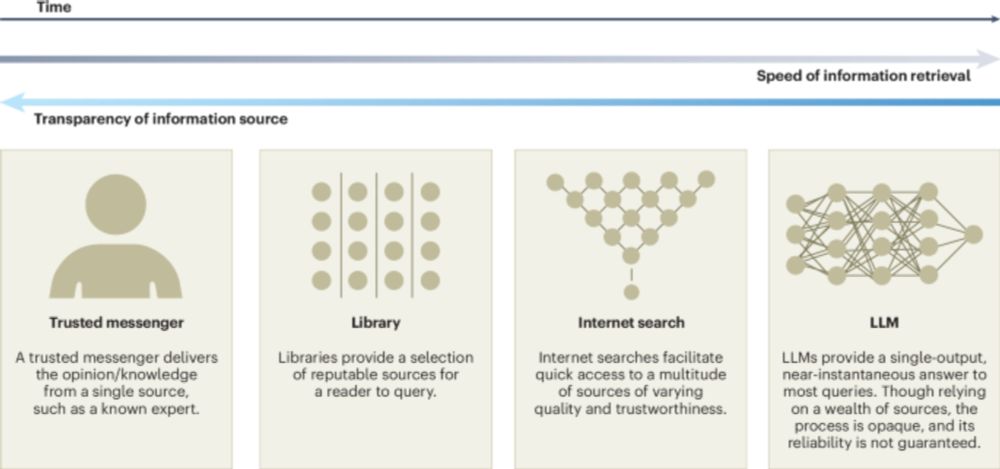Samuel Aeschbach
@aeschbach.bsky.social
100 followers
140 following
14 posts
Cognitive Science, Complexity, Mental Representation, Risky Decisions | Postdoc @unibas.ch | Guest Researcher @arc-mpib.bsky.social
Posts
Media
Videos
Starter Packs
Samuel Aeschbach
@aeschbach.bsky.social
· Aug 12
Samuel Aeschbach
@aeschbach.bsky.social
· Aug 12
Samuel Aeschbach
@aeschbach.bsky.social
· Aug 12
Samuel Aeschbach
@aeschbach.bsky.social
· Aug 12

Measuring individual semantic networks: A simulation study
Accurately capturing individual differences in semantic networks is fundamental to advancing our mechanistic understanding of semantic memory. Past empirical attempts to construct individual-level sem...
doi.org
Reposted by Samuel Aeschbach
Samuel Aeschbach
@aeschbach.bsky.social
· Jan 10
Reposted by Samuel Aeschbach
Reposted by Samuel Aeschbach
Jason W. Burton
@jasonburton.bsky.social
· Sep 20

How large language models can reshape collective intelligence - Nature Human Behaviour
Collective intelligence is the basis for group success and is frequently supported by information technology. Burton et al. argue that large language models are transforming information access and tra...
www.nature.com












